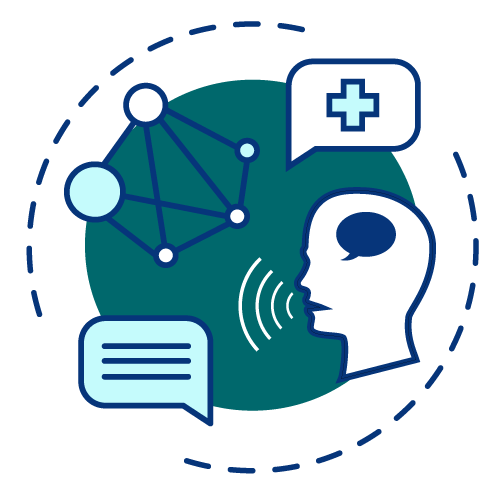How a Speech Pathologist Can Help Enhance Communication Skills
How a Speech Pathologist Can Help Enhance Communication Skills
Blog Article
Exactly How a Speech Pathologist Can Help Improve Interaction Abilities
Efficient communication is a keystone of individual and professional success, yet numerous individuals face obstacles that impede their capacity to reveal themselves plainly. A speech pathologist is furnished to resolve these obstacles with targeted analysis and treatment techniques customized to each person's requirements. By using evidence-based therapeutic strategies, they not just function to improve speech and language problems yet also boost overall communicative proficiency. Understanding the multifaceted duty of a speech pathologist reveals just how their proficiency can change lives, inviting a more detailed evaluation of the specific methods and end results associated with their technique.
Recognizing Interaction Conditions
Understanding communication problems is necessary for recognizing exactly how they influence people' ability to reveal themselves and involve with others. Interaction conditions include a large range of problems that influence speech, language, and social communication, typically impeding reliable interaction. These disorders can arise from various aspects, consisting of neurological problems, developing hold-ups, physical problems, or psychological issues.
Speech problems might manifest as problems in voice, expression, or fluency manufacturing, affecting how words are pronounced or spoken. Language conditions, on the various other hand, include obstacles in understanding or using language, which can restrain both spoken and non-verbal interaction. Social interaction problems are characterized by difficulties in the practical elements of interaction, such as taking turns in discussion or understanding social hints.
The repercussions of communication conditions are profound, influencing not just the person's ability to share thoughts and feelings however also their social connections, educational chances, and overall lifestyle. Awareness of these disorders can cultivate empathy and assistance, motivating reliable techniques for interaction and involvement. Understanding the complexities of interaction problems is an important step towards promoting inclusivity and dealing with the needs of those influenced.
Role of a Speech Pathologist
Speech pathologists regularly play an essential duty in treating and identifying communication conditions, employing a variety of evidence-based strategies tailored to each individual's needs. These professionals deal with people across the life expectancy, from children with speech delays to adults recovering from strokes or terrible brain injuries. Their know-how encompasses a selection of interaction concerns, including expression, fluency, voice, and language disorders.
In healing setups, speech pathologists make use of organized treatments developed to enhance interaction skills. They might execute approaches such as speech exercises, language video games, and social interaction training to help with renovations in receptive and meaningful language capacities. Speech Pathologist. Additionally, they inform customers and their family members regarding efficient interaction strategies and adaptive methods to navigate day-to-day interactions
Beyond straight treatment, speech pathologists work together with other healthcare instructors, specialists, and caretakers to make certain an extensive technique to treatment. They support for clients by supplying resources and assistance, enabling people to accomplish their interaction goals and improve their total top quality of life. As specialists in the area, speech pathologists are important in fostering effective interaction, promoting freedom, and enhancing social participation for those with communication difficulties.
Evaluation and Medical Diagnosis Process
The analysis and diagnosis process carried out by speech pathologists commonly involves a detailed examination to determine communication problems accurately. This process starts with a comprehensive medical history, where the clinician gathers relevant information about the person's medical, educational, and developmental background. Recognizing the context of the person's interaction troubles is essential for a precise medical diagnosis.
Complying with the medical history, speech pathologists make use of casual analyses and standard tests to examine numerous facets of interaction, consisting of speech sound manufacturing, language understanding, expressive language, and social interaction skills. These evaluations are customized to the individual's age and specific problems, providing beneficial data for analysis.
Monitoring is additionally an essential component of the evaluation process, as it enables the clinician to go to my site see direct exactly how the specific interacts in all-natural setups. In addition, meetings with member of the family and teachers can give understanding into the individual's interaction obstacles across various atmospheres.
When the evaluation is full, the speech pathologist synthesizes the findings to figure out a diagnosis and recommend suitable treatments. This complete evaluation process guarantees that individuals obtain targeted assistance tailored to their special interaction requirements, laying the structure for effective restorative approaches.
Therapeutic Methods and Approaches
Countless restorative methods and approaches are employed by speech pathologists to deal with a selection of communication conditions efficiently. One widely made use of approach is articulation treatment, which concentrates on remedying speech seems via rep and visual signs. This technique is specifically helpful for people with speech audio disorders.
Another efficient strategy is language intervention, which improves both expressive and responsive language abilities. This may entail interactive activities that advertise vocabulary development, sentence structure understanding, and conversational abilities. Additionally, speech pathologists frequently make use of social skills educating to enhance pragmatic language abilities, enabling people to navigate social communications more effectively.
Fluency shaping and stuttering modification methods are specifically made to assist those experiencing fluency conditions. These methods assist customers develop smoother speech patterns and handle the physical and emotional parts of stuttering.
Furthermore, augmentative and alternate interaction (AAC) systems are employed for individuals with extreme interaction impairments. These systems, which can consist of motions, icons, anchor or digital tools, provide necessary assistance for reliable interaction.
Advantages of Speech Treatment

In addition, speech therapy can assist in establishing important listening and comprehension abilities, promoting much better communication in discussions. Individuals with cognitive-communication problems can also benefit, as treatment concentrates on strengthening memory and analytical capacities, vital for effective interaction.
An additional crucial facet is the emotional assistance supplied during treatment sessions. Speech pathologists develop a safe atmosphere, motivating patients to get rid of anxiousness and irritation pertaining to their communication issues. This assistance can bring about enhanced self-esteem and total psychological wellness.
In addition, very early treatment via speech therapy can prevent additional problems, making sure that individuals reach their complete communicative possibility. Generally, the benefits of speech therapy expand past plain speech renovation, positively affecting numerous measurements of life for those influenced by communication difficulties.
Verdict
In recap, speech pathologists play an essential duty in attending to communication problems through assessment, medical diagnosis, and tailored therapeutic interventions. By using evidence-based techniques, these experts boost individuals' speech and language capabilities, fostering improved clearness, fluency, and social communication skills. The benefits of early intervention highlight the relevance of looking for support from speech pathologists, as their expertise can substantially improve communicative potential, ultimately causing greater success in both personal and specialist spheres.

Speech pathologists often play an important function in treating and detecting communication conditions, employing an array of evidence-based this contact form strategies tailored to each individual's demands. As specialists in the area, speech pathologists are important in fostering efficient interaction, advertising self-reliance, and enhancing social engagement for those with interaction obstacles.

Report this page